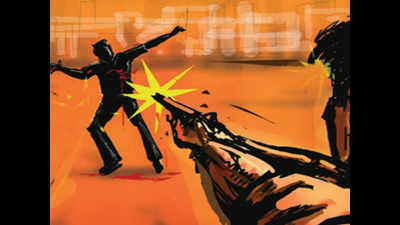- News
- City News
- lucknow News
- ‘IS sympathiser shot in UP radicalised on Telegram’
Trending
This story is from November 30, 2019
‘IS sympathiser shot in UP radicalised on Telegram’
With Facebook-owned WhatsApp embroiled in a cyber-espionage row, another end-to-end encrypted messaging platform, Telegram, has gained currency.

Representative image
LUCKNOW: With Facebook-owned WhatsApp embroiled in a cyber-espionage row, another end-to-end encrypted messaging platform, Telegram, has gained currency. But this lesser-known app is more vulnerable to security breach after police stumbled upon Telegram messages of a suspected ISIS sympathizer, who was killed in a police encounter in Lucknow in March.
“Suspected ISIS sympathiser Mohammed Saiful killed during a siege in Haji Ali Colony in Thakurganj was radicalised on Telegram.He was very active on this messaging service,” said former ATS ADG Asim Arun, who led the commando operation in the state capital.
Arun, who is now ADG Technical Services, was speaking to TOI on sidelines of the 47th All India Police Science Congress (AIPSC) organised in Lucknow, where a special session on social media and radicalisation was held with top officials from different security wings.
With social media playing an active role in radicalisation of young minds, another top police official said: “At least 53 youths from UP were radicalised on social media platforms. Of this, 17 have been de-radicalised and others critically analysed.”
“Under this section, an intermediary is duty-bound to remove or block content on instructions from authorities. Since Telegram has no nodal office in India unlike Facebook, YouTube, Twitter and WhatsApp, it's impossible for police to enforce intermediary liability against it. There’s no law in India that enables police to bypass encryption.” Germany, US and EU enforced strict laws which forces these social media platforms to target and take down materials that propagate, spread terror content and ideologies. “India also needs to look forward to new frameworks that adopt similar set of regulations,” he said.
“Suspected ISIS sympathiser Mohammed Saiful killed during a siege in Haji Ali Colony in Thakurganj was radicalised on Telegram.He was very active on this messaging service,” said former ATS ADG Asim Arun, who led the commando operation in the state capital.
Arun, who is now ADG Technical Services, was speaking to TOI on sidelines of the 47th All India Police Science Congress (AIPSC) organised in Lucknow, where a special session on social media and radicalisation was held with top officials from different security wings.
With social media playing an active role in radicalisation of young minds, another top police official said: “At least 53 youths from UP were radicalised on social media platforms. Of this, 17 have been de-radicalised and others critically analysed.”
Earlier, Kalraj Mahesh Kumar, DIG, Ernakulam range in Kerala, said: “Telegram was launched in Russia in 2013 and subsequently banned in 2018. Indonesia was quick to follow. Then why can't Indian police agencies impose intermediary liabilities against social media platforms? This is due to misinterpretation of Section 79(3) of IT Act.”
“Under this section, an intermediary is duty-bound to remove or block content on instructions from authorities. Since Telegram has no nodal office in India unlike Facebook, YouTube, Twitter and WhatsApp, it's impossible for police to enforce intermediary liability against it. There’s no law in India that enables police to bypass encryption.” Germany, US and EU enforced strict laws which forces these social media platforms to target and take down materials that propagate, spread terror content and ideologies. “India also needs to look forward to new frameworks that adopt similar set of regulations,” he said.
End of Article
FOLLOW US ON SOCIAL MEDIA










